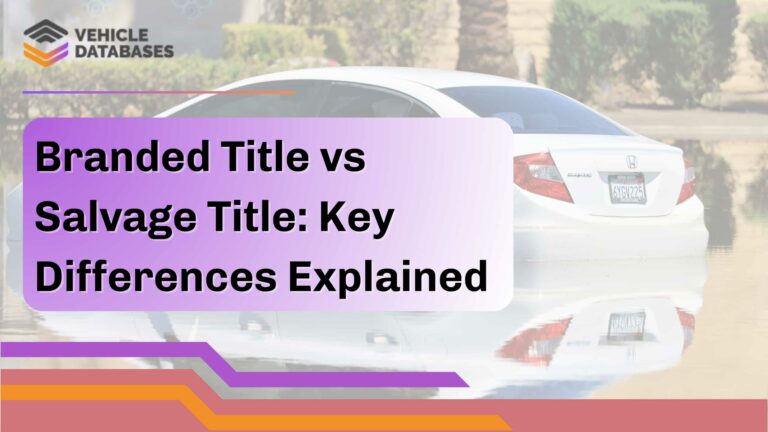Application Programming Interfaces (APIs) are beginning to revolutionize the automotive industry as we know it today. Its use has also grown exponentially in the past few years. One of these APIs that has been widely used is the License plate to VIN API. With the API, car buyers, owners, and sellers can easily retrieve the Vehicle Identification Number of their vehicles using their vehicle’s license plate numbers. In this article, we will discuss the License Plate to VIN API, how it works, and its benefits.
What is a License Plate to VIN API?
A license plate to VIN API is an application programming interface that accepts license plate numbers of vehicles as input from car owners or buyers through an application or website and returns vehicle information on the year, make, model, and VIN. With a license plate API, you can seamlessly generate accurate vehicle history reports and gain access to your vehicle’s information without providing the VIN as input.
Have you heard of odometer rollback and other car scams? With a license plate to VIN lookup API, the vehicle information collection is automated leaving car buyers to easily identify car frauds and scams and make the best choices.
How does the License Plate to VIN API work?
Generally, a license plate to VIN API works by requesting a license plate number from a car owner, buyer, or seller but with the license plate recognition API provided by Vehicle Databases, you can simply scan your vehicle’s license plate and gain access to the information encoded in the license plate. Some of the details you can access after the license plate to VIN API has been successfully called include:
- Year
- Make
- Model
- VIN
After the license plate has been decoded, you can easily gain access to other vehicle data using the VIN decoder API and VIN lookup API.
ALSO READ: Top 7 Car Image API Providers With High-Quality Image Libraries
The VIN Decoder API
The VIN decoder API is an application programming interface that requests a VIN and provides accurate vehicle specifications to car buyers looking for the perfect vehicle that meets their needs and car owners in need of accurate vehicle parts information. The information provided after the VIN decoder API has been successfully called includes:
- Make
- Model
- Year
- Trim
- Vehicle size
- Displacement
- Engine model
- Transmission
- Manufacturer information, etc.
The VIN lookup API
If you are interested in providing access to the full history and records of vehicles to your customers, it is recommended to integrate the VIN lookup API into your business’s website or application. The VIN decoder provided by Detailed Vehicle History accepts a VIN as input and decodes the VIN to provide the following information:
- Accident history
- Damage history
- Active recalls
- Lien and loan records
- Service history
- Maintenance history
- Vehicle specifications
- Market value
- Theft records
- Auction history
- Sales history and more.
Dealerships and other automotive businesses providing accurate VIN information to customers through a VIN lookup API enjoy higher sales rate, better reviews and a competitive advantage over others. Customers are also given the opportunity to purchase their most preferred vehicles at fair prices.
ALSO READ: Automatic License Plate Recognition Using VIN OCR API
Benefits of the Vehicle Databases license plate to VIN API
Vehicle Databases is a leading provider of VIN data APIs to dealerships, vehicle history report providers, and other automotive businesses. With their APIs, these businesses can easily provide vehicle information to their customers whenever necessary to make the best decisions.
The license plate to VIN API offered by Vehicles Databases offers:
- Lightning-fast license plate number scanning with optical character recognition (OCR) technology
- Responses in an editable string (JSON format) and return back the plate number and state
- Preeminent solutions that come with easy integration and implementation
- Accurate license plate number capturing in poorly lit conditions, capture numbers from different angles and distances, easily capture characters from stacked numbers, vanity plates, or icons-based plates as in Florida or Wyoming
Other benefits of using the license to VIN API in conjunction with other VIN data APIs provided by Vehicle Databases include:
- Automation: With the License Plate to VIN API, users can significantly reduce the likelihood of errors and save time by automating the process of retrieving a car’s VIN.
- Accuracy: With the License plate to VIN API customers can gain access to accurate information directly from the databases of government agencies, car manufacturers, and insurance companies, among others. This ensures that the information retrieved is accurate and up-to-date.
- Cost-effective: Searching for car information manually is tedious and expensive as every detail of the vehicle cannot be kept in one building. With the License Plate to VIN API, dealerships and other automotive businesses can reduce the time spent on manual vehicle information searches as well the costs.
- Enhanced Customer Experience: The License Plate to VIN API can be integrated into various applications, such as car rental services and online car sales platforms, to enhance the customer experience by providing quick and accurate vehicle information.
- Fraud Detection: With the License plate to VIN API, automotive businesses can instantly identify frauds and car scams by comparing the provided VIN with the VIN etched on the vehicle. This way, customers can be certain they are purchasing reliable vehicles at fair prices.
The License Plate to VIN API provided by Vehicle Databases is a powerful tool that automates the process of retrieving a car’s VIN by using its license plate number. This API offers several benefits to users, including automation, accuracy, cost-effectiveness, enhanced customer experience, and fraud detection. Other benefits of the License plate to VIN API include increased efficiency and improved compliance. With the license plate to VIN API integrated into an application or website, car buyers, owners, and sellers can easily access vehicle information without their VINs and make informed decisions.




